
Used To, Be Used To, Get Used To ANSWERS Learn english words, English worksheets for kids
Grammar explanation Used to + infinitive and be / get used to + - ing look similar but they have very different uses. used to We use used to + infinitive to talk about a past situation that is no longer true. It tells us that there was a repeated action or state in the past which has now changed.
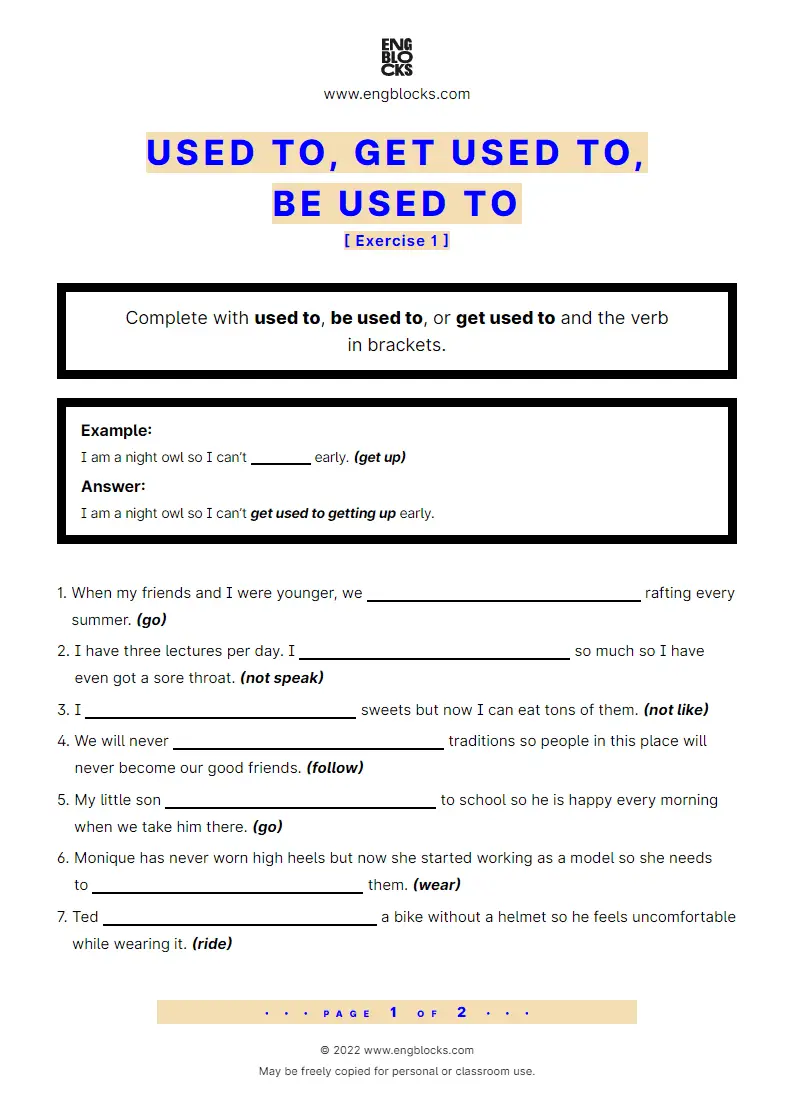
Used to, Get used to, Be used to Worksheet English Grammar
To be used to something means to be accustomed to it, to do something so regularly that it is now familiar, or you have learned to accept it. To get used to something means to become accustomed to it. Be or get 'used to' is followed either by a noun or by a verb ending in -ing. Tom is used to noise. Julie is used to hard work.

Used To, Be Used To, Get Used To Used to grammar, Used to worksheet, English lessons
"Be used to" has two different meanings. The first is "used for" or "used in order to." This is similar to the basic meaning of "use" we mentioned at the start of this article. A clock is used to tell time. This device is used to help you find your phone if you lose it.

Difference between "Used to", "Be Used to" and "Get Used to" ESL Buzz
Key Takeaways. "Used to": A past habit or state (now changed). Example: We used to go camping every summer. "Be used to": Familiarity with a situation. Example: We are used to getting up early for work. "Get used to": The process of becoming familiar with something. Example: We are getting used to the new software at work.

Used to and Be Get Used to Materials For Learning English
We use 'be used to' to describe something that was unusual in the past but is normal now. The basic pattern for using 'be used to' is the same: be used to + noun or the gerund (-ing form). Take a look at these examples from the podcast: I'm used to the noise of the crowd now. I am used to getting to know new players.
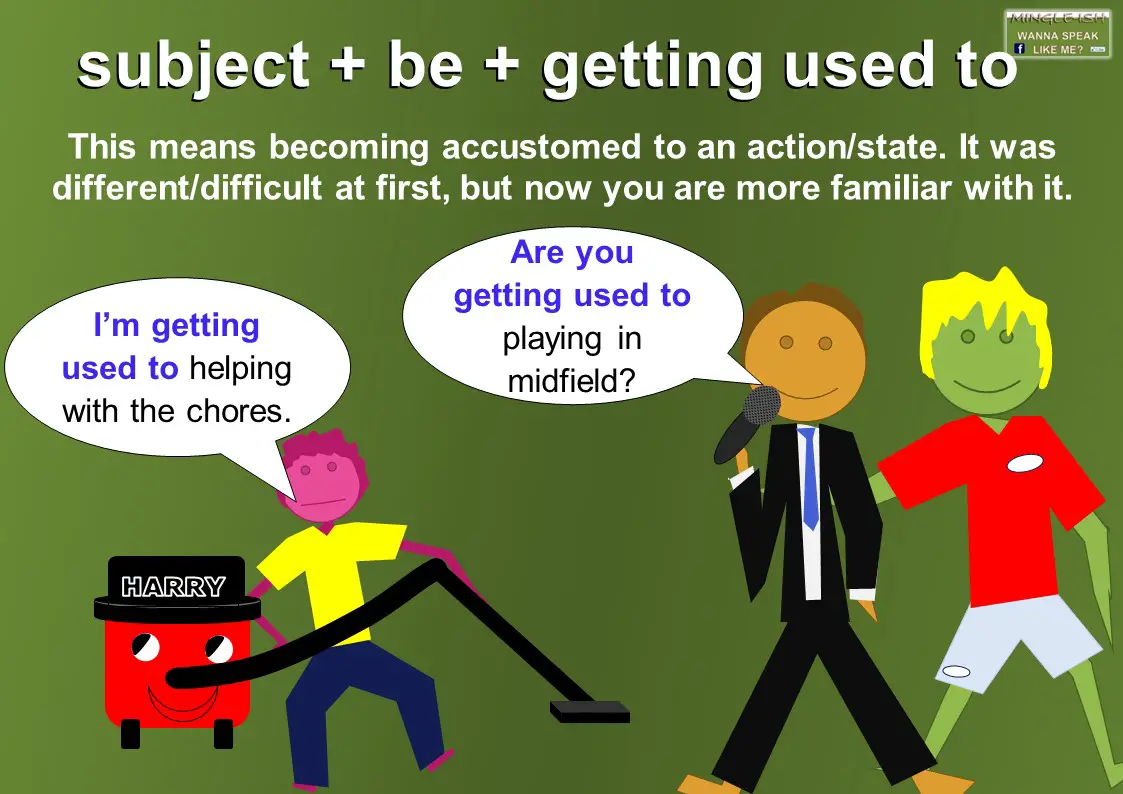
'Get used to' Grammar meaning and examples Mingleish
Be used to, get used to, used to Home > Resources (Grammar & vocabulary) > Grammar rules > Grammar rules A-Z > How to use be used to, get used to and used to correctly. Download this exercise Are you a teacher? Get a PDF-format handout of this exercises for your classroom or online teaching. Get the PDF printable version

Be Used To and Get Used To LANGUAGE ON Schools
'Be used to': We use 'be used to + verb-ing' to talk about things which feel normal for us or things that we are accustomed to: I'm used to getting up early, so I don't mind doing it (= getting up early is normal for me, it's what I usually do). My little daughter is used to eating lunch at noon.
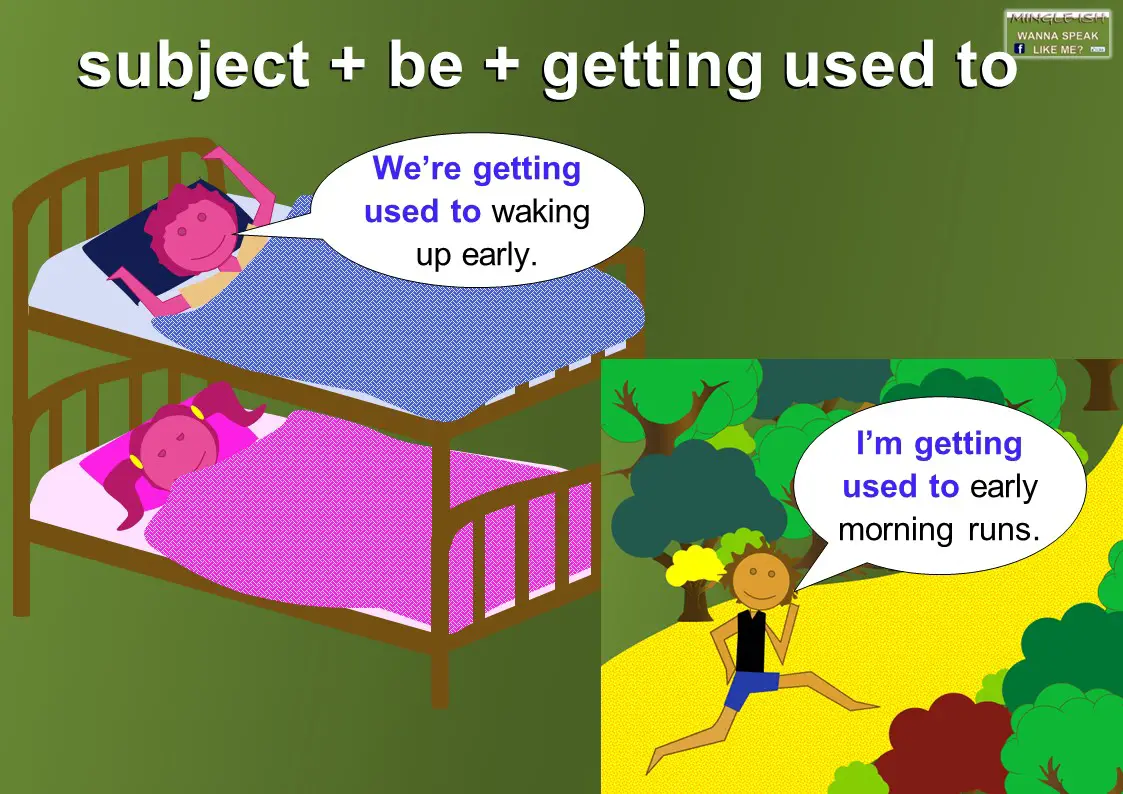
'Get used to' Grammar meaning and examples Mingleish
20 mins Other Grammar Rules People often get confused about the use of used to + infinitive and be/get used to + 'ing' form because they look similar. They are, however, completely different. How to Use Used to Form Positive Sentence: Subject + used to + V (infinitive). Negative Sentence: Subject + didn't use to + V (infinitive).

Used to vs. Be Used to vs. Get Used to How to Use them Correctly ESLBUZZ
Used to Let's start with the last phrase, "used to." "Used to" is considered a modal verb, though an unusual one, since it is only found in the past tense. Choose "used to" to say that.

used tobe used toget used to Used to grammar, Teaching english grammar, Vocabulary english
To Be Used to & Use to: The Difference in English Grammar Many of my students have difficulty understanding the difference between be used to and use to. Do you know the difference? Try to complete these two sentences: When I was a child, I have blonde hair. Now, my hair is grey. Marco hot weather. He is from Spain. It's usually hot there.
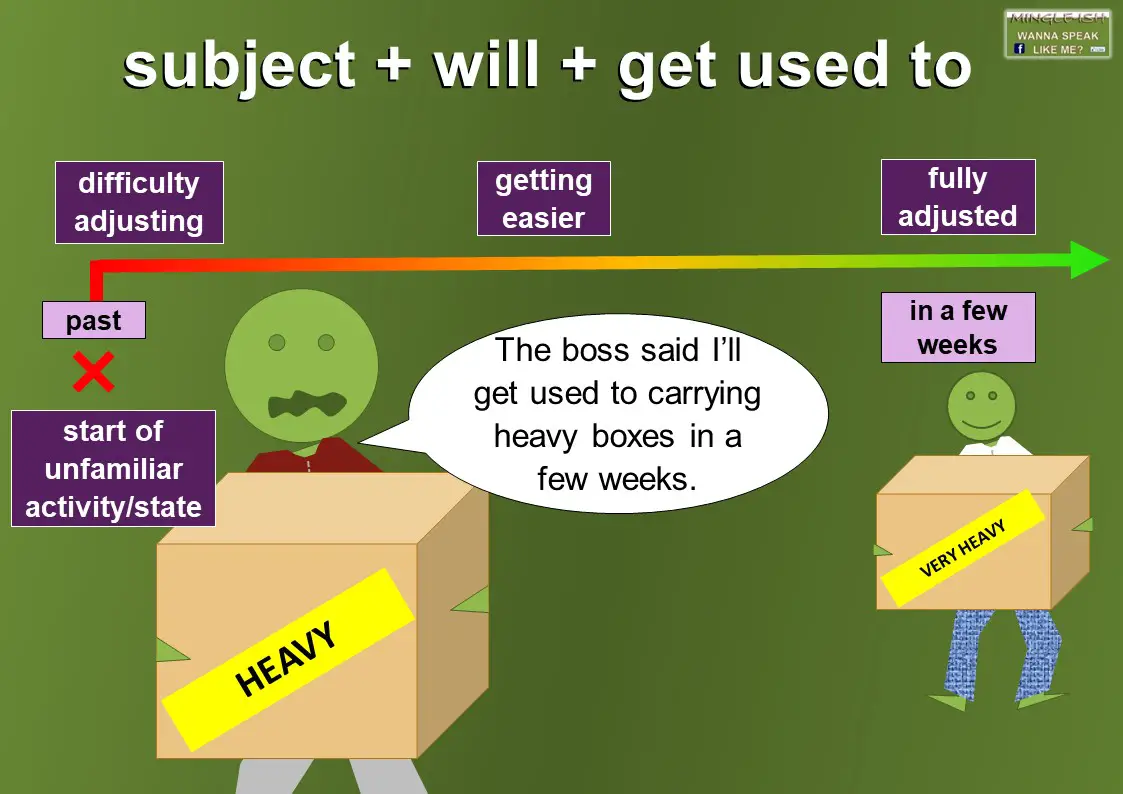
'Get used to' Grammar meaning and examples Mingleish
Used to - English Grammar Today - a reference to written and spoken English grammar and usage - Cambridge Dictionary

Cómo usar USED TO / GET USED TO en inglés? Amigos Ingleses
used to | be used to | get used to | English Grammar lesson Hi Guys! In today's video, learn the difference between USED TO / BE USED TO / and GET USED TO. T.

BE USED TO OR GET USED TO Juegos en ingles, Ingles para viajar, Clase de inglés
Correct answers: be used to vs. used to do. EnglishClub : Learn English : Grammar : Verbs : be used to vs. used to do : be used to. BE USED TO is an expression. It is not a tense. If I say 'We ARE USED TO Thailand', it is like saying 'We are accustomed to Thailand.'. Do not confuse BE USED TO with with the special structure USED TO DO.
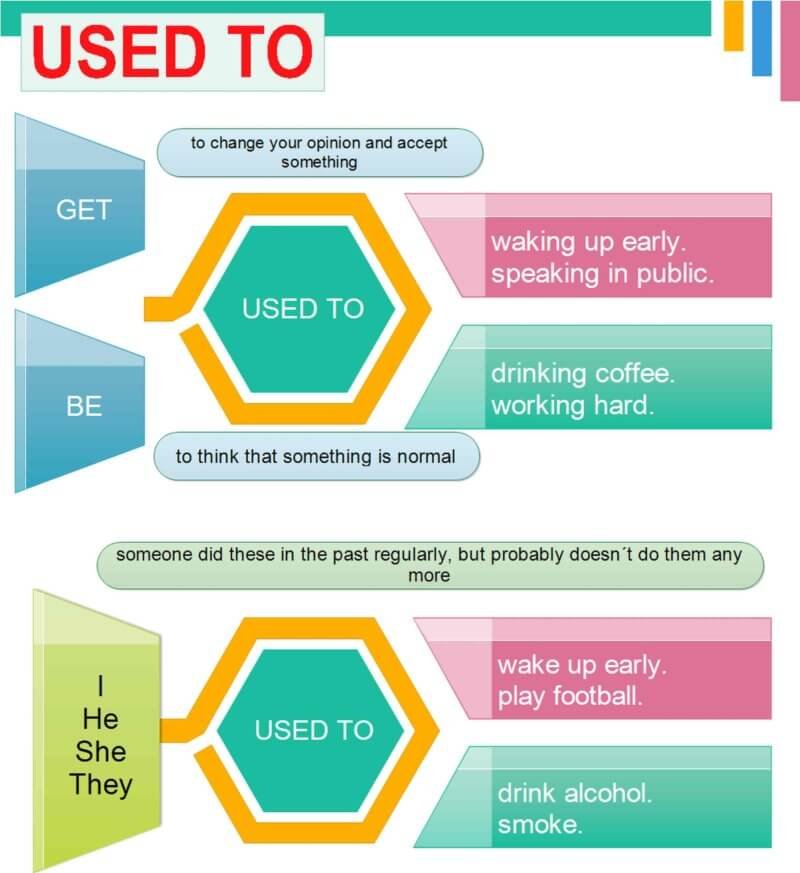
Used to, Get used to and Be used to Games to learn English
Get used to is used to express that an action/situation becomes less strange or new, or becomes more comfortable. It took them a long time to get used to their new boss. Have you got used to driving on the left yet? She is getting used to waking up early for her new job. Additional points Be used to can be modified with adverbs.

Used to, be used to, get used to TestEnglish
Used to, be used to, get used to - Grammar Chart. Download full-size image from Pinterest Used to do Repeated actions in the past. We can use used to + infinitive to talk about things that we did repeatedly in the past.. When I was a child, I used to go skiing every winter.; From the age of 12 till I was 16, I used to dance at weekends.; Situations or states that are no longer true

Used To Get Used To Be Used To Efortless English
BE USED TO SOMETHING/SOMEONE definition: 1. to be familiar with something or someone: 2. to be familiar with something or someone: . Learn more.